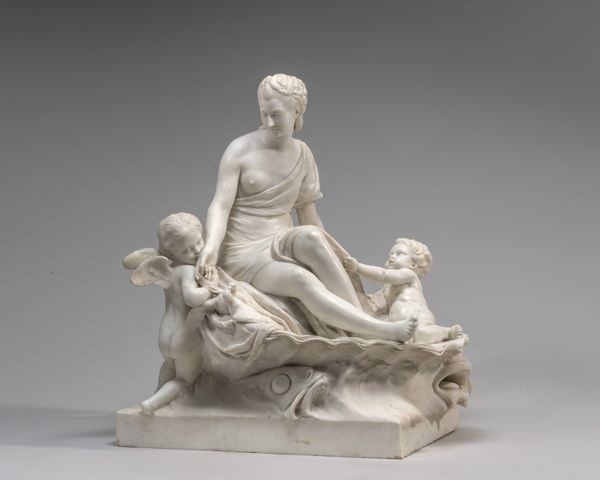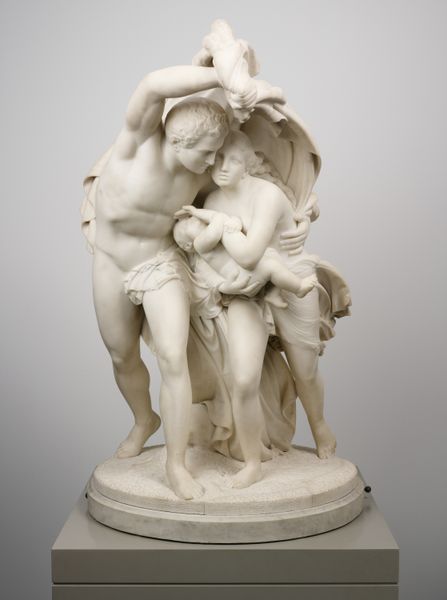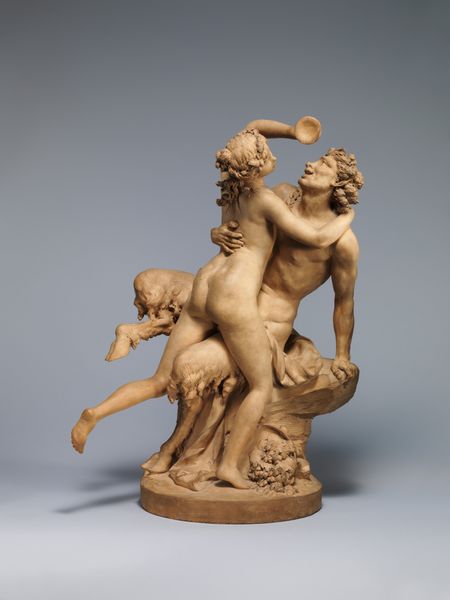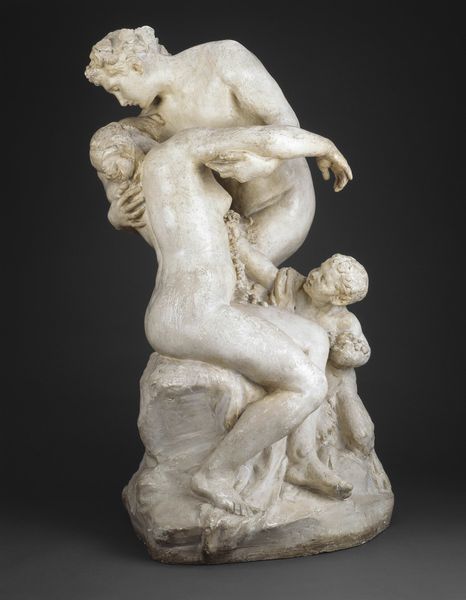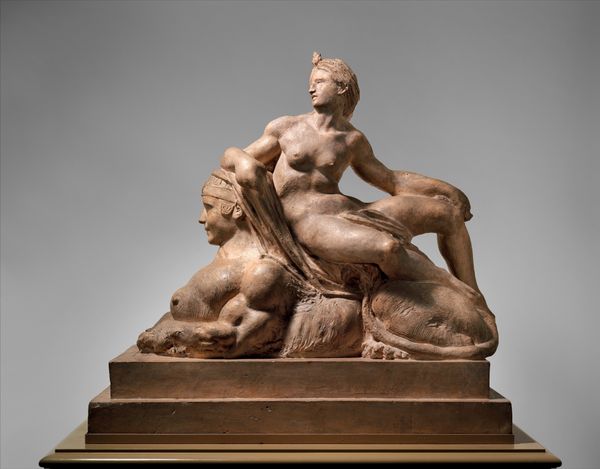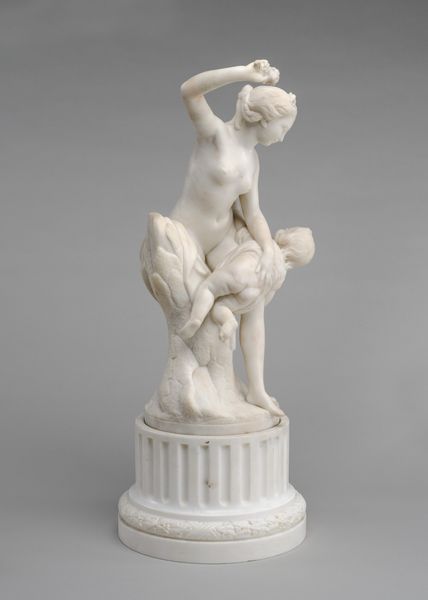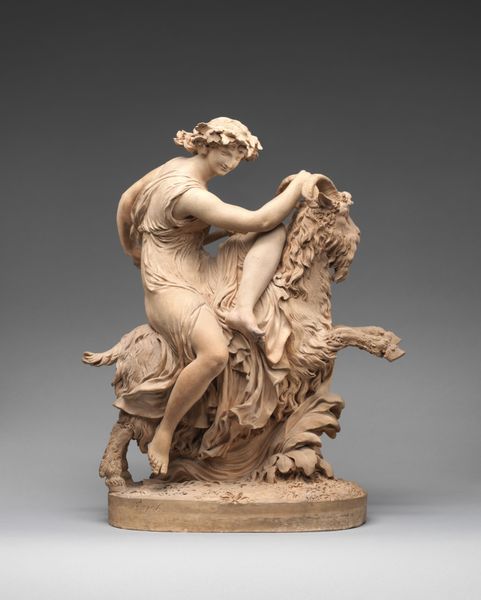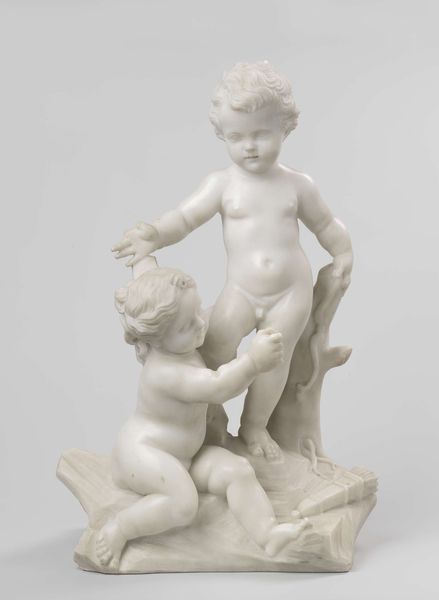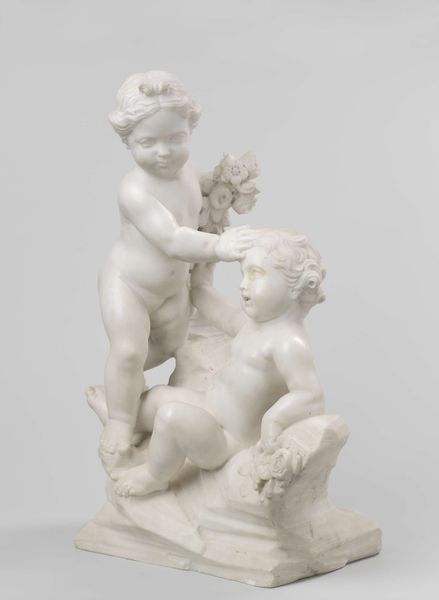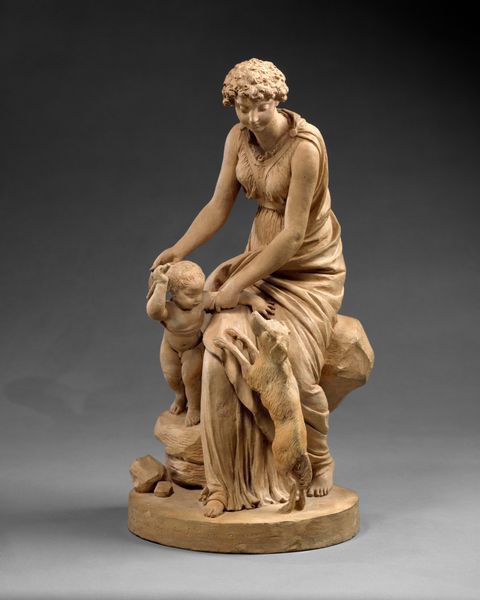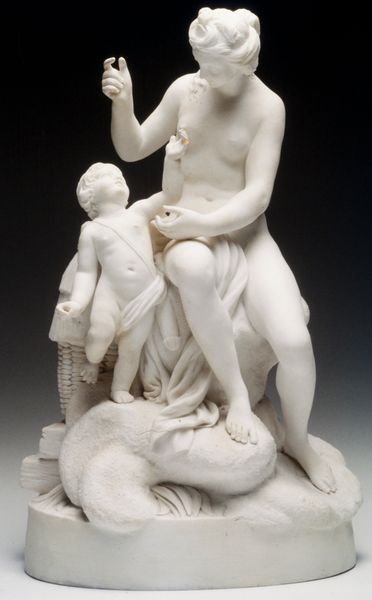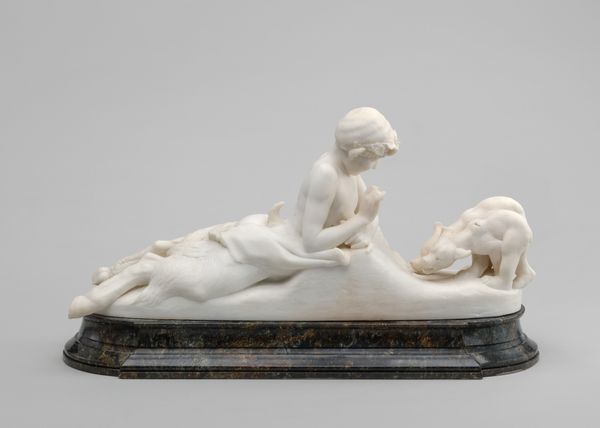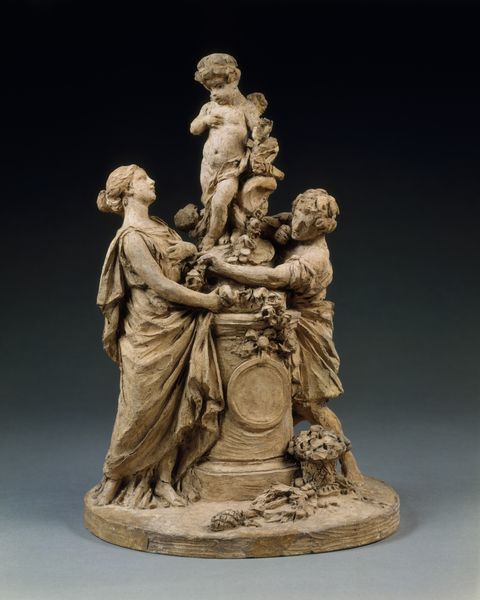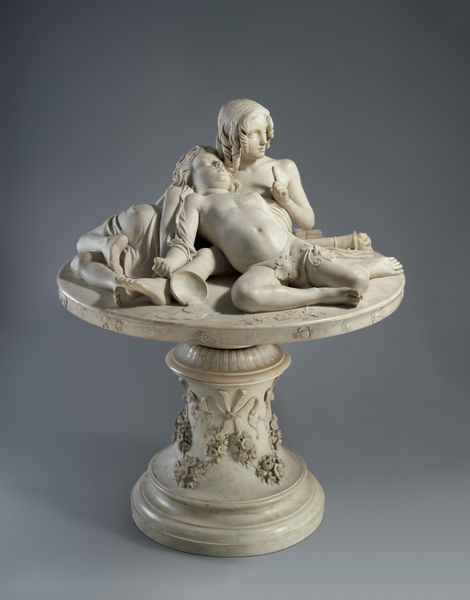
sculpture, marble
#
allegory
#
stone
#
sculpture
#
figuration
#
female-nude
#
cupid
#
sculpting
#
sculpture
#
history-painting
#
decorative-art
#
marble
#
rococo
Dimensions: Overall: 9 7/16 × 5 1/8 × 8 11/16 in. (24 × 13 × 22.1 cm)
Copyright: Public Domain
Etienne-Maurice Falconet made this sculpture of Leda and the Swan in the 18th century, using unglazed soft-paste porcelain known as biscuit. The appeal of biscuit lies in its matte surface, which resembles marble and allows for exquisite detail. But unlike marble, porcelain can be cast, enabling complex forms and, crucially, reproduction. Falconet was the director of the Sèvres porcelain manufactory, and he shrewdly exploited this capacity, creating a sensation with his sculptures. Porcelain was the perfect medium for Rococo sculpture, its delicate nature mirroring the preciousness of the subject matter. The amorous encounter between Leda and the swan, along with the attending Cupid, is rendered with a light touch, belying the intense labor involved in its production. By combining the sensuous appeal of marble with the industrial potential of porcelain, Falconet blurred the lines between art, craft, and manufacture. He fully understood the market for luxury goods, and how to exploit it.
Comments
No comments
Be the first to comment and join the conversation on the ultimate creative platform.
